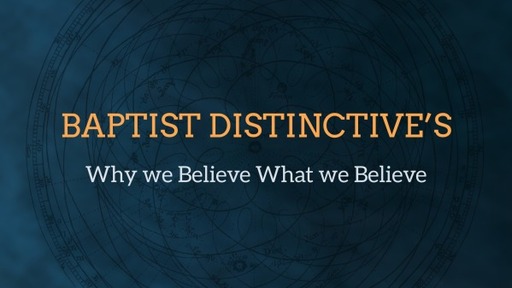Baptist Distinctive's (3)

P-Priesthood of The Believer
Toward the conclusion of Victor Hugo’s Les Misérables, the hero, Jean Valjean, is lying in bed as he slowly slips into death, surrounded by his “daughter,” Cosette; her husband, Marius; and a doctor. An elderly woman who has been viewing this scene through a half-closed door is so moved by the sight that she can no longer contain her religious zeal and cries out to Valjean, “Do you want a priest?” He raises his arm and points above his head, where you would have thought he saw someone, and answers, “I have one.”
Christian readers immediately comprehend the religious significance of this closing vignette from Hugo’s masterpiece—although from different perspectives. To a Roman Catholic it portrays a dying man’s ill-advised refusal of “last rites” by a priest. To a Protestant it depicts the conviction that the priestly ministry of Christ is sufficient and needs no earthly supplement, and thus illustrates the importance of the Reformation doctrine, the “priesthood of all believers.”